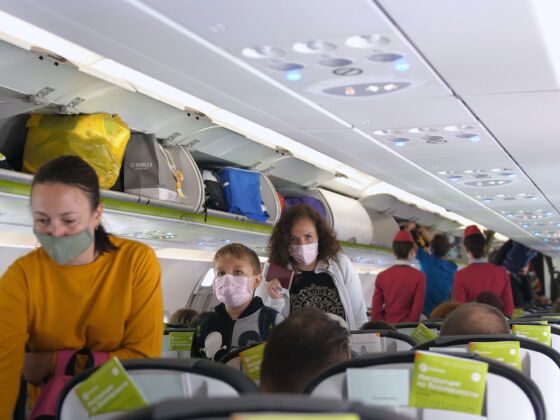Masks have been widely hailed as an effective preventative measure against COVID-19, but there are still skeptics who doubt their efficacy. Well, new evidence has just emerged showing that masks are indeed a game changer in reducing the spread of the coronavirus on planes.
In Hong Kong, health officials have been testing and tracking all passengers who land in the city and administering a PCR test upon arrival, followed by a mandatory 14-day quarantine. After the quarantine is over, passengers are tested again. This allows health officials to know which passengers boarded the plane while already infected with the virus, and if they infected anyone else inflight.
